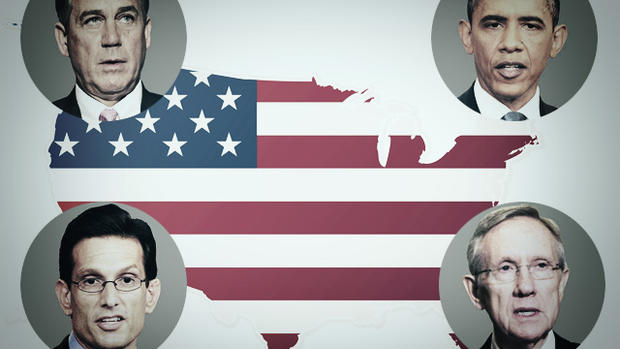Calif. borrowing $5B ahead of potential debt crisis
California borrowed $5.4 billion from private investors Tuesday as a hedge against a possible default by the federal government.
State Treasurer Bill Lockyer secured the package of short-term loans from a group of banks, credit unions and investment funds so the state can avoid a potential cash shortage if the federal government fails to extend its debt ceiling.
If that happens, the government could shortchange states on health care and education funding.
The treasurer said he took the step as a precaution if the federal government can't meet all its obligations.
"California had to obtain this interim financing to protect the state from the immediate, drastic consequences of a failure by Washington to resolve the debt ceiling impasse by the Aug. 2 deadline," Lockyer, a Democrat, said in a statement. "I'm hopeful Congress and the president will do the responsible thing, solve the problem before it's too late, and not risk pushing the country into a financial and economic abyss."
Special report: America's debt battle
California typically borrows money in the late summer to pay operating expenses until most income tax receipts arrive in the spring.
Lockyer secured the so-called bridge loan because it's unclear whether California would be able to borrow that much money if the credit markets are thrown into turmoil.
Democrats and Republicans in Washington are clashing over plans to slash spending and raise the debt ceiling ahead of the Aug. 2 deadline - the day the White House said the federal government will exhaust its ability to borrow and meet all its obligations.
Medicaid, the federal-state health program for low-income families, is known in California as Medi-Cal. Medicare is the health insurance program for seniors and the disabled.
California received loans from eight banks and private investment firms. Goldman Sachs and Wells Fargo & Co. provided the largest amounts, at more than $1.4 billion each.
The state, which currently has the lowest credit rating among the 50 states at A-, plans to repay the loans later this summer through routine borrowing notes to be issued in late August.
Lockyer appeared to obtain a good interest rate based on the state changing the way it calculates how much money it has in reserve this year.
The treasurer's office said the yield on the notes is 0.237 percent, compared with 1.4 percent the state paid for short-term borrowing in 2010. The latest notes mature on Nov. 22, but the state could pay them off ahead of time.
The treasurer also warned that a default would trigger a downgrade of the federal government's triple-A bond rating. It would not only raise interest rates but negatively affect state and local government borrowing costs because some states' rates are linked to Treasury rates.
"The ripple effects on state and local finance for the whole country are very substantial," Lockyer said earlier this month.
